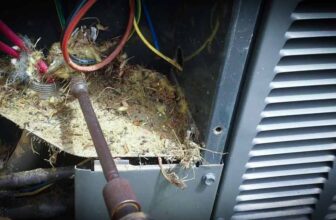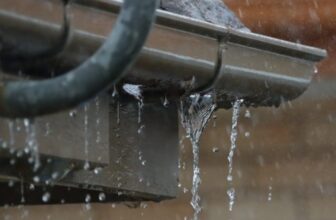
Recovering from a disaster can be overwhelming, especially when it comes to paying for costly home repairs. For retirees, dipping into retirement accounts such as a 401(k) or IRA may seem like a convenient way to cover these expenses. However, it’s essential to understand the tax consequences and evaluate whether using retirement funds is the best choice for your situation.
This article will explore how retirees can access their retirement accounts for disaster-related home repairs and the tax considerations that come with it.
Table of Contents
Tapping into Retirement Funds for Disaster Repairs
Retirees can withdraw funds from retirement accounts like IRAs or 401(k)s to pay for home repairs following a disaster, but the withdrawals generally come with tax obligations and, in some cases, penalties.
1. Using 401(k) Savings

Source: cnbc.com
A 401(k) allows you to save money pre-tax for retirement, but withdrawing funds from the account will trigger income taxes. Any amount you withdraw is counted as part of your taxable income for the year, which could push you into a higher tax bracket.
- Penalties for early withdrawals ─ If you’re younger than 59½, a 10% early withdrawal penalty typically applies. However, after a federally declared disaster, the government may offer special provisions, like those seen in past disaster relief acts, allowing penalty-free withdrawals in certain circumstances.
- 401(k) loans ─ Some 401(k) plans allow participants to borrow against their account balance instead of making a direct withdrawal. This can be a more tax-friendly option because loans aren’t taxed as income and don’t incur penalties, as long as the loan is repaid on time.
2. Accessing IRA Funds
Like 401(k)s, IRA withdrawals are also taxed as ordinary income. While IRAs don’t offer a loan option, they do have slightly different rules for withdrawals.
- Penalties for early withdrawals ─ As with a 401(k), withdrawals from an IRA before age 59½ incur a 10% penalty. However, in past instances where natural disasters were federally recognized, penalty waivers have been allowed for qualified disaster distributions up to $100,000.
- Roth IRA considerations ─ If you have a Roth IRA, you can withdraw the amount you contributed without paying taxes or penalties at any time, since you’ve already paid taxes on those contributions. However, withdrawing any earnings before age 59½ could lead to taxes and penalties unless special disaster-related provisions apply.
Tax Considerations for Retirement Fund Withdrawals

Source: news24.com
While retirement accounts can serve as a financial safety net during times of crisis, retirees should be cautious of the tax implications that come with tapping into these funds:
- Income tax on withdrawals ─ Any distribution from a traditional IRA or 401(k) is considered taxable income. This can lead to a larger tax bill, especially if the withdrawal is significant enough to push you into a higher income tax bracket.
- State taxes ─ Depending on your state’s tax laws, you may also owe state income taxes on the withdrawal. Certain states may exempt some or all retirement income, while others fully tax it.
- Disaster-related tax relief ─ In some cases, Congress passes legislation providing tax relief for individuals impacted by a federally declared disaster. For example, past tax relief acts have included provisions allowing penalty-free early withdrawals and the ability to spread the taxes owed on those distributions over several years. However, these provisions are not automatic for every disaster and depend on Congress’s specific response.
How to Reduce Tax Liability

Source: assetvantage.com
There are a few strategies that retirees can use to lessen the tax burden when accessing retirement accounts to fund home repairs:
1. Spread Withdrawals Over Time
If you need a large sum for repairs, consider spreading the withdrawals over multiple years. This can help avoid moving into a higher tax bracket, thereby minimizing the total amount of income tax you’ll pay.
2. Take Advantage of Special Disaster Relief
When a disaster is declared by the federal government, look into whether there are special tax provisions in place. For example, in the past, qualified disaster distributions allowed retirees to withdraw up to $100,000 penalty-free and spread the income tax liability over three years.
3. Explore Other Financial Resources
Before accessing your retirement accounts, investigate other funding sources that may be more tax-efficient. Options such as homeowners insurance, FEMA disaster grants, or low-interest loans from agencies like the Small Business Administration (SBA) could provide funds without the tax consequences of tapping retirement savings.
Recent Trends in Using Retirement Savings for Disaster Recovery

Source: smartasset.com
A rise in natural disasters has led more retirees to consider using their retirement funds for repairs. A 2023 article in Forbes highlights that while this is becoming a common practice, retirees should be mindful of the long-term impact on their financial stability. The article emphasizes the importance of exhausting all other options—such as disaster grants and insurance—before turning to retirement accounts.
Similarly, a 2024 update from Kiplinger advises retirees to stay informed about any new tax provisions that may apply after a disaster. The publication recommends consulting with a financial advisor to weigh the benefits and drawbacks of withdrawing from retirement savings, especially as tax laws continue to evolve in response to disaster recovery needs.
Conclusion
Accessing funds from your 401(k) or IRA to repair your home after a disaster is possible, but it comes with significant tax implications and could reduce your future retirement savings. Retirees should carefully consider these factors and explore alternative options before making withdrawals from their accounts.
If you do decide to use retirement funds for disaster recovery, be sure to consult a financial advisor to help you navigate the process, maximize tax relief, and protect your long-term financial security.
It may be beneficial to speak to an advisor who focuses on not just investing but on retirement taxation. Christopher J. Dixon and Samuel Dixon of Oxford work to help families in Florida with these types of issues.
- Forbes (2023) ─ How to Use Retirement Funds for Disaster Recovery Without Derailing Your Savings. Retrieved from Forbes.com.
- Kiplinger (2024) ─ Disaster Relief ─ Tapping Your 401(k) or IRA for Emergency Expenses. Retrieved from Kiplinger.com.
- IRS (2020) ─ Taxpayer Certainty and Disaster Tax Relief Act of 2020. Retrieved from IRS.gov.
- Disaster Tax Relief and Airport and Airway Extension Act of 2017, Pub. L. No. 115-63, 131 Stat. 1168 (2017).
Oxford Wealth Group, LLC is a federally registered investment adviser under the Investment Advisers Act of 1940. Registration as an investment adviser does not imply a certain level of skill or training. The communications of an adviser provide you with information about which you determine to hire or retain an adviser. Information about Oxford can be found by visiting the SEC site www.adviserinfo.sec.gov. and searching by our firm name. We are a financial services firm that utilizes insurance and investment products. Insurance products and services are offered and sold through Oxford Advisory Group. Oxford Wealth Group, LLC and Oxford Advisory Group are affiliated but separate entities.







